Psychology is rooted in science that seeks to understand our thoughts, feelings and actions. It is also a broad field – some psychology professionals develop and test theories through basic research; while others work to help individuals, organizations, and communities better function; still others are both researchers and practitioners.
Profiles
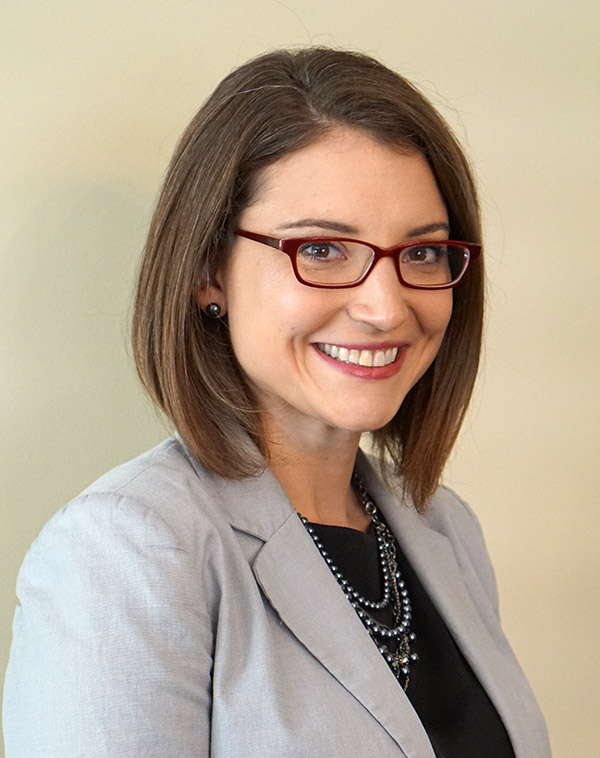 Lauren Florko
Lauren FlorkoDr. Lauren Florko is the founder of Triple Threat Consulting, providing managerial consulting for corporate social responsibility, change management, and organizational development.
Dr. Lauren Florko
“Consultant” is such a nondescript term, isn’t it? Virtually everyone can style themselves a “consultant” when writing a CV or a LinkedIn profile. Which is why it’s good that Lauren Florko can get a little more specific than simply saying she’s “self-employed” as a “consultant”.
Lauren created Triple Threat Consulting, a firm which provides managerial consulting for a variety of projects - from corporate social responsibility to change management to organizational development. With a Ph.D. in Industrial/Organizational Psychology specializing in workplace stress, Lauren’s statistics training gave her a competitive advantage over similar consultants who come from a HR background.
Triple Threat Consulting plays on the film industry’s play on ‘triple threats’ as she specializes in Talent Management. The “Triple” also plays on the concept of triple bottom lines (planet and people outcomes on top of profits).
Triple Threat Consulting also fills a unique market need with psychological assessments, thanks to Lauren’s training. This means empirically-based strategies with practical implementations. Statistical analysis and reporting to produce key business insights. And the ability to engage a variety of audiences through keynotes and workshops.
The founder of a Multi-disciplined Research Lab, one of Triple Threat’s clients, says:
“She's doing advanced research methodologies...doing hierarchical linear modeling and item response analysis...She is highly motivated, particularly with high end analysis – she gets excited about that. She is very punctual with delivery."
What Lauren likes most about her job, she says, is the work-life balance it affords her. Well that, and of course the excitement she derives from high-end analysis to drive better business decisions.
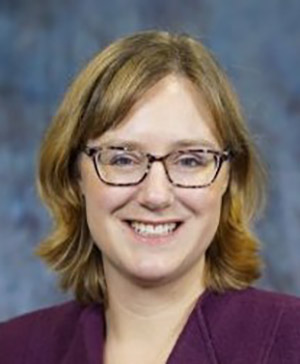 Heather Orpana
Heather OrpanaHeather has a long career in public service, working in three different federal departments. She recently moved into Substance-Related Harms, to help tackle the opioid crisis.
Heather Orpana
This is an excerpt from a larger article written by Dr. Heather Orpana in this month’s issue of Psynopsis. Click this link to read the whole article.
My path to a career in psychology was in no way a straight one. I started an undergraduate degree in science with a specialization in physics before completing two years of a baccalaureate in nursing and then finally switching to, and graduating with, an honours degree in psychology. After spending a summer as an intern at a non-profit organization writing plain language summaries of research studies that would impact patients, I decided to pursue a career in research and applied for my doctorate. I wanted to be part of the system that creates the evidence used to promote the health of the population.
I completed my doctorate in experimental psychology at the University of Ottawa, at the same time that the university was establishing a multidisciplinary program in Population Health. I was very fortunate to be funded by Health Canada’s National Health Research and Development Program, and the Canadian Institutes of Health Research during my doctorate and was hired by Health Canada to conduct policy-relevant data analysis before I had finished my program.
It has been sixteen years since I started my career in public service. During that time, I have worked in three federal departments: Health Canada, Statistics Canada, and the Public Health Agency of Canada. Every single position I have held has benefited tremendously from my training in psychological science. My first analysis project demonstrated the relationship between mental health and healthy living behaviours, in 2003, using Canada’s first national mental health survey. After working for several years at Health Canada, conducting analysis, and contributing to data policy and coordination, I moved to Statistics Canada to focus on research and analysis. There, I engaged in research in the areas of healthy weights, healthy aging, and mental health, all informed by my education in psychology.
Most recently, I have been appointed as a Senior Research Scientist and am working in the Substance-related Harms Division, supporting surveillance and applied research contributions to addressing the opioid overdose crisis. In this role, I advise on research methods and conduct research studies to inform our understanding of how the crisis is evolving.
Public health cannot address the complex problems we are faced with in the 21st century without the knowledge and skills of psychological science researchers. I have yet to find a single public health issue that is not informed by our discipline. Even public health issues that may seem like they belong more in a wet lab, such as anti-microbial resistance, can be addressed only with the incorporation of a behavioural perspective. I hope that other psychological science researchers see their value in contributing to improving the health of all Canadians.
 Gregory Craig
Gregory CraigDr. Gregory Craig is part of a team of “human factors researchers” at the National Research Council. His work might one day lead to a new frontier in aviation – pilotless airplanes.
Gregory Craig
One day, you might take a flight from Saskatoon to Dublin. There will be in-flight movies, tiny difficult-to-open bags of peanuts, flight attendants distributing cheap headphones and tiny pillows, and free tiny cans of wine once you’re over international waters. There will, however, be one major difference. On this flight, there will be no pilot.
At least, such a thing is possible. But not until a whole lot more studying is done on the subject. Some of those studies are currently being conducted by Dr. Gregory Craig and a team of human factors researchers at the National Research Council of Canada.
Gregory has been involved in a wide variety of research projects. He’s done research on night vision goggles, displays for infrared cameras for search and rescue, and the design of symbolic information displays for pilots. Currently, he’s involved in examining ‘trust in automation’ to assess pilots’ trust in automatic flight systems. This ranges from basic elements like an off-the-shelf autopilot to looking at fully autonomous (no pilots) flight.
Gregory spent his formative years at Carleton University, earning a PhD in Cognitive Psychology in 1997. While his current role is mostly unrelated to his studies, he credits the people he met along the way for getting him to where he is today.
“There is a wide gulf between what I studied in university and the type of research that I do now. The main elements of my university studies that helped were basic experimental design, document editing and data analysis. Much of my training in applied research came from one of my supervisors who was employed at the Communications Research Centre and an adjunct at Carleton. He encouraged me to participate in several of the applied research projects that he worked on for CRC. The other source of applied research thinking came from a course for which I was a teaching assistant at Carleton. The course was a basic introduction to sensation and perception, but the prof teaching the course had a large number of industrial design students in the class. For those students, the prof took the time to explain how basic elements of sensation and perception could be applied to the design of systems and products intended for use by the general population.”
One might expect a psychologist to lead project teams, analyze data, submit research proposals, prepare reports and presentations, and manage projects. But maybe not to design and conduct flight tests, evaluate advanced cockpit technologies, and explore human factors issues for pilots, crew and passengers.
So think about Gregory Craig the next time you’re on a plane – it might be his work that enhanced the technology in the cockpit, or designed the display used to navigate. And while you’re doing that, you might want to check to see if, up front in the cockpit, there’s still a pilot.
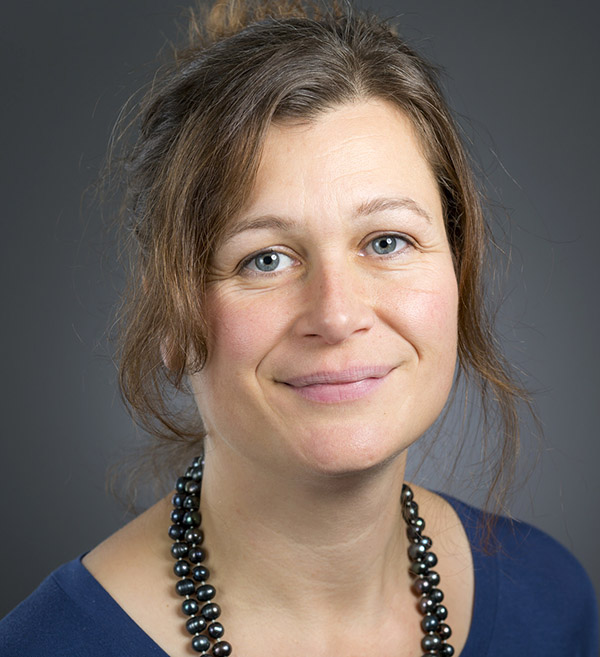 Alexandra Thompson
Alexandra ThompsonDr. Alexandra Thompson is a Program Leader with the NRC working on ‘High Performance Buildings’. Her team aims to reduce energy emissions by identifying industry, scientific, technological & societal issues that can stall the adoption of new technologies.
Alexandra Thompson
Alexandra Thompson is helping to devise a vision for future scientific exploration, as a Program Leader with the National Research Council of Canada. She manages a large team and a portfolio of science and engineering projects focused on a strategic goal. Specifically, that goal is focused on the ‘High Performance Buildings’ program.
This program, established in 2013, aims to reduce energy emissions in buildings by identifying the industry, scientific, technological and societal issues that could stall the adoption of new technologies. Alexandra is working at knowledge mobilization (the translation of science to action) to ensure the science is used for environmental change. She also has the chance to encourage younger researchers to develop their careers, scientific interests and to have confidence in their abilities.
In 2007, Alexandra obtained her PhD in environmental psychology and human factors from the University of Southampton in the UK. She says her training has aided greatly with, among other things, knowledge mobilization.
“My psychology training has enabled me to ensure good scientific methodologies and statistical analysis are used and the ethics of a project are considered. Also, working in an engineering multi-disciplinary environment understanding the human and societal implications of an engineering project has helped with the applicability of projects to real world conditions or expectations.”
As climate change becomes more and more devastating, and as environmental concerns become the number one national priority, programs like ‘High Performance Buildings’ will be at the forefront of the effort to curb emissions. Knowledge mobilization to that effect is becoming more critical than ever. We’re glad that Alexandra Thompson, and others like her, are working on those exact things. Bringing about the change that is needed to tackle the most serious issue of our time.
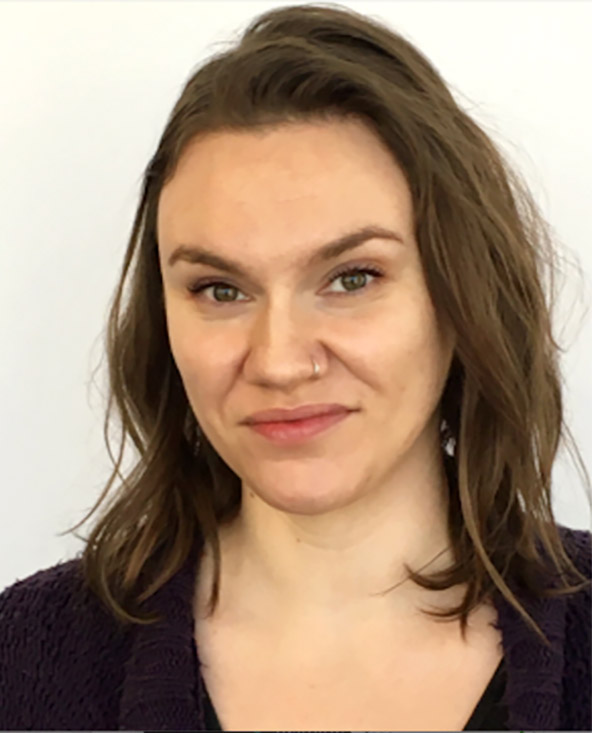 Robin Langerak
Robin LangerakWorking as a Design Researcher on a suite of business intelligence software tools at IBM’s Ottawa studio, Robin Langerak says “I get to do a little bit of everything I loved about running my own research studies as a psychology graduate student!”
Robin Langerak
It’s convenient when you can find a career in the city where you are completing your PhD. Such was the case for Robin Langerak, who began working at IBM in their Ottawa Studio while completing her doctorate in Cognitive Psychology at Carleton University. She has now been there more than a year, working as a Design Researcher on a suite of business intelligence software tools designed and developed by the Ottawa product team.
Robin provides design recommendations that will help improve the user experience for this software. That involves everything from problem definition to study design and data collection to synthesis and communication of research findings. Psychology has prepared her for all of this in a big way. She says,
“Data collection, storage, and analysis methods that I learned in training are invaluable at my job. I also rely on the understanding of human thought and motivation that I studied in school as well as the techniques I learned to check my bias and measure constructs as accurately as possible.“
The best thing about her job?
“I get to do a little bit of everything I loved about running my own research studies as a psychology graduate student in a fast-paced, high impact environment.“
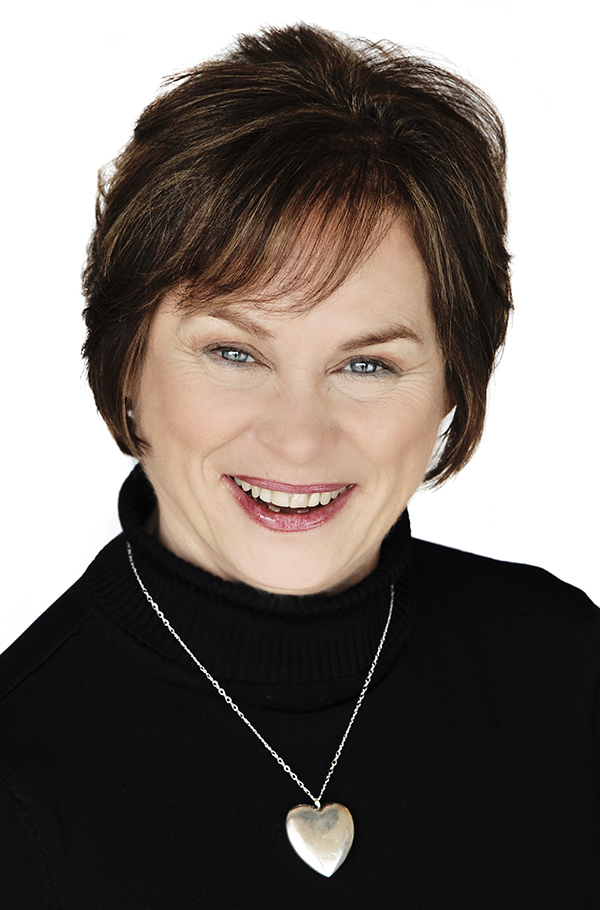 Suzanne Simpson
Suzanne SimpsonDr. Suzanne Simpson founded the talent management firm Human Resource Systems Group Ltd. more than 30 years ago. Now the CEO, HRSG is a global company, hiring people and taking on clients from all over the world
Suzanne Simpson
For much of this month, we have been focusing on jobs and careers available to psychology majors once they graduate from school. Suzanne Simpson not only found one of those careers, she helps others find theirs. Suzanne is the founder and CEO of Human Resource Systems Group Ltd. (HRSG), a software-as-a-service talent management firm.
What that means is that her company creates software for human resources departments to simplify their work. Need to build the perfect job description, so you can attract the perfect employee? HRSG has the software for that. Then they have an interview guide built for you, so you can make the correct decision. Now you have a new employee with a job description that puts them and their management on the exact same page. From there, that employee might use one of HRSG’s career pathing programs, complete with assessments and learning resources to help them in their current job today, and to reach their dream jobs tomorrow.
All of this is built based on Suzanne’s training in psychology. She earned her PhD in Industrial/Organizational Psychology from the University of Ottawa, and says the training she received there supports the main focus of HRSG’s service and software offering to their clients.
HRSG celebrated 30 years in business in 2019 and offers its services and products to organizations worldwide. HRSG employs professionals trained in Industrial / Organizational and other related disciplines from across Canada and around the world.
It is challenging to build a business, and very rewarding when it comes to fruition. Suzanne takes satisfaction in offering a service that is highly valued by her clients, and embraces the continuous learning and innovation that comes with her role as CEO.
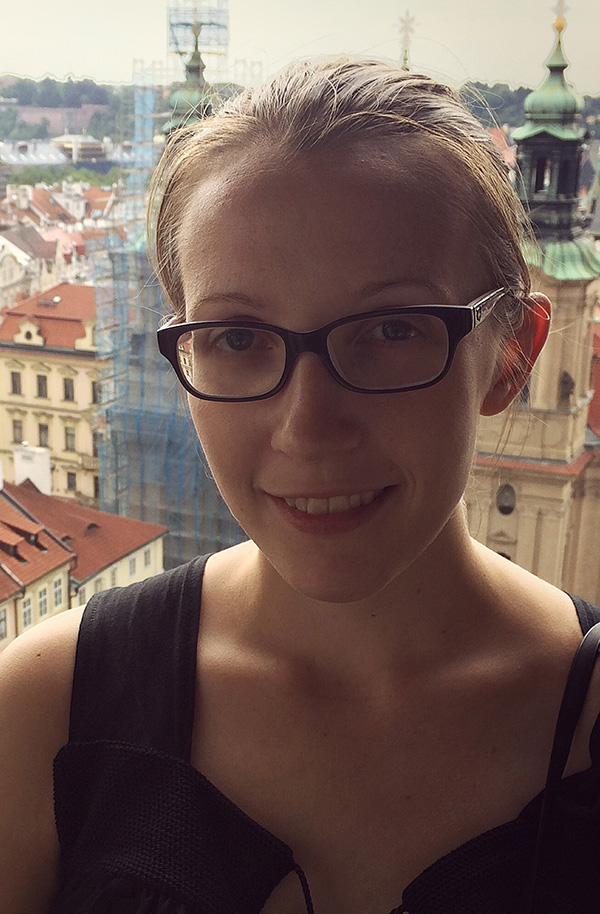 Chrissy Chubala
Chrissy ChubalaDr. Chrissy Chubala helps naval personnel make better decisions during mission planning and execution. She is a Defence Scientist in Maritime Decision Support at Defence Research & Development Canada’s Atlantic Research Centre.
Chrissy Chubala
My name is Chrissy Chubala, and I am a Defence Scientist in Maritime Decision Support at Defence Research & Development Canada’s Atlantic Research Centre. My job is to guide and assist in the development of tools that will help naval personnel make better decisions during mission planning and execution, from the perspective of cognitive psychology. This involves a consideration of human factors, human-computer interactions, team dynamics, and basic cognition.
My training in psychology (PhD, Cognitive Psychology, University of Manitoba 2017) has provided me with both concrete and abstract forms of knowledge that help me in my current role. The concrete skill sets of experimental design and statistical inference are directly applicable to my work, although the constraints and goals of applied research are different enough from those of academia that some relearning and rethinking has had to occur.
Thankfully, the more abstract forms of knowledge provided by my training have positioned me well for this transition. My training in psychology taught me versatility, creativity, and lateral thinking. I have the ability to learn about a new topic very quickly, to creatively apply my existing knowledge and skill sets to new scenarios, and to find connections between seemingly disparate ideas or fields of study. With these abstract skills in hand, I have been able to adapt my more concrete areas of expertise to the requirements of the job.
What I enjoy most about my current position is the level of structure it provides, the direct sense of impact that comes from conducting applied research, and the ability to collaborate and exchange ideas with a very diverse group of scientists.
I receive specific problems to solve but I am free to explore them in any manner I see fit; this provides me with some structure around which to focus my efforts, but enough flexibility to follow my interests. Moreover, the ability to see the direct effects of my research on the lives and work of others is rewarding in a way that my academic career in experimental psychology was not. Finally, I get to work with interesting and brilliant researchers from all areas of study, from physics to chemistry to computer science. Not only do I get to learn new things I would otherwise know nothing about, but my own unique perspective and expertise are a valued part of the whole and I get to teach as much as I learn.
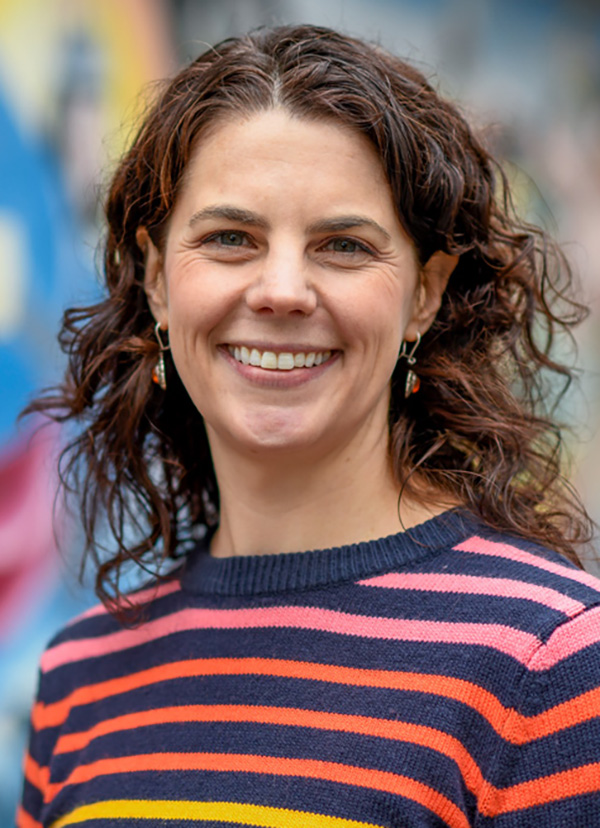 Amy Bucher
Amy BucherAmy Bucher graduated with a PhD from a psychology program that no longer exists, and that made her skill set unique in the post-grad world. She puts those skills to use at Mad*Pow, a design agency that improves peoples’ experiences with technology, services, organizations and each other.
Amy Bucher
“Mad*Pow leverages strategic design and the psychology of motivation to create innovative experiences and compelling digital solutions that are good for people and good for business.”
That is Mad*Pow’s mission statement, ripped right from their webpage. Mad*Pow employs medical doctors and all kinds of behaviour change design experts. But perhaps you would be surprised to learn that Mad*Pow’s behavior change experts come from a variety of training backgrounds. Currently, there is only one person on the team with a PhD in psychology!
That one person is Dr. Amy Bucher, the vice president of behaviour change design at Mad*Pow. Amy brings a unique skill set to her position, and took a rather unique path to get there. She started school at Harvard, doing an undergrad focused on social psychology. From there, she moved on to the University of Michigan at Ann Arbour for her Master’s and PhD in Psychology. Although that is the official title of her degree, it was achieved a little over a decade ago in a program that no longer exists.
It was called Organizational Psychology. It was not an Industrial/Organizational program of the type we see offered now, it was more as Amy describes it a “contextualized social psychology program”. That means that when she graduated she was more of a social psychologist, albeit one with a deep knowledge of workplaces and organizations.
Amy realized as she was nearing the end of her schooling that she did not want to go into academia. That track meant specialization, and she wanted to broaden her horizons rather than narrow her focus. She began to work with other researchers and learned many different research methods before graduation. She learned how to dive into information and deal in the “grey areas”. After all, research is always in progress.
That comfort with the “grey areas” has served her well at Mad*Pow, as often clients will ask Amy for definitive answers on how to tackle a problem. She is adept at explaining that while formative research can provide a direction, it can’t often come up with a concrete and foolproof series of steps to take to achieve an aim. It’s important to experiment with different approaches that are specific to the clients’ customers and their needs to figure out the best solution.
Her desire to broaden her scope is also an asset, as Amy thrives on having a variety of projects and problems to work through. She likes being exposed to new things. She says,
“Right now, I’m leading a project to understand what people with a rare genetic condition might be looking for from an online portal to support their condition management. So we’ve designed moderator guides, recruited people with this condition, and recruited people who serve those with this condition to conduct interviews. We’ll be creating output reports with insights from that research, doing a workshop with the client that we will also design, then translating all the insights from the research into designs for this portal.”
Amy says that before starting this project, she had never heard of this particular genetic condition before (it is very rare). Now she’s had the opportunity to learn quite a bit about it and understand more about the day-to-day lives of the people who live with it.
“I feel excited by this type of new knowledge that I don’t think I’d encounter in any other way.”
She’s also excited at the prospect of some new colleagues. There are many different types of researchers at Mad*Pow (which further helps Amy broaden her horizons as she learns from them), but soon there will likely be a few more psychology grads joining the fold. As Amy says, there are now many great opportunities outside academia for graduating researchers. And working alongside Amy seems like a pretty great opportunity.
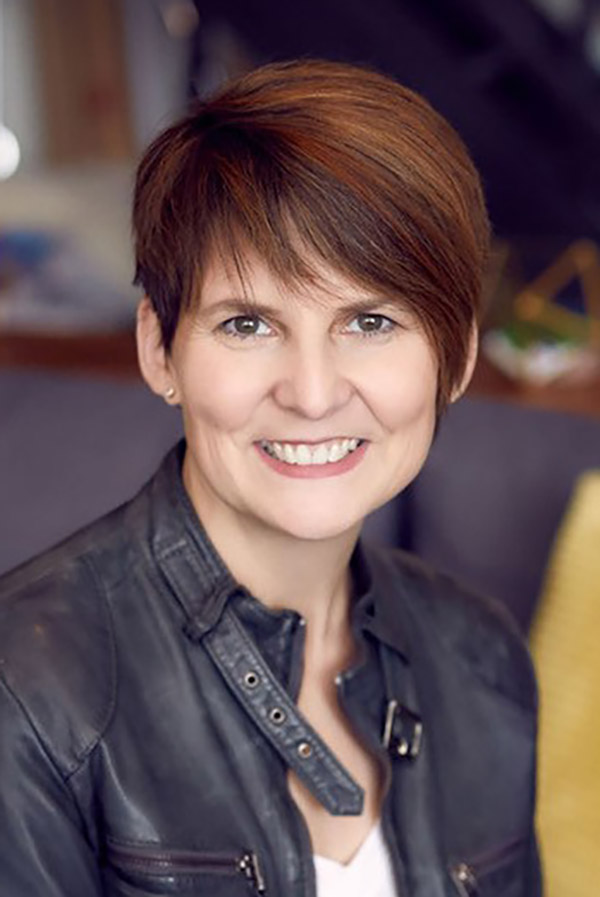 Liane Davey
Liane DaveyA writer, blogger, public speaker, and volunteer board member at the Psychology Foundation of Canada, Liane Davey has made her mark on corporate culture with her consultancy group 3COze.
Liane Davey
“You need to have more conflict.”
This is Dr. Liane Davey’s advice to almost every organization with which she works. These include enormous companies like TD Bank, Amazon, and smaller companies like Shoretel. Chris Burgy, former VP of Strategy at Shoretel, says of Liane and her company 3COze,
“Liane supported us in rolling out a methodology for productive communication and conflict to our top 100 leaders in the company. Without a doubt, I fervently recommend Liane to any company seeking to improve their organization’s accountability, communication methods and for those seeking a fantastic facilitator for strategic level planning.”
3COze is named in conjunction with their mission statement. They seek to transform the way people “communicate, connect, and contribute” in their organizations. Liane is the co-founder and principal of 3COze, and brings her “more conflict” approach to CEOs and senior leadership teams around the country and across the world.
She says the number one thing that’s getting in the way of productivity is that people are avoiding conflict and being passive-aggressive. That means conflict sits unresolved causing a lack of productivity, eroding trust and engagement, and causing stress for individuals.
Liane says the things she learned in obtaining her PhD in Industrial/Organizational Psychology from Waterloo are the same ideas she puts into practice today.
“It’s very much applied social psychology. So, issues of motivation, team dynamics, conflict, culture, all the sorts of things that are the bread and butter of organizational psychology have been my whole career.”
And what a career it has been! Not only does Liane work with some of the biggest CEOs and companies around the world, she is also an author (her book The Good Fight: Use Productive Conflict to Get Your Team and Organization Back on Track is available at online book sellers everywhere), a blogger (at www.lianedavey.com) and a public speaker, bringing her message of productive conflict to corporate crowds everywhere.
She is also a volunteer member of the board of trustees at the Psychology Foundation of Canada (PFC), a charity that brands itself a “child-based (birth-18) mental health promotion organization” thanks in part to Liane’s strategic skills in directing the board and the group. And also her ability to create productive conflict, and not to shy away from uncomfortable conversations.

She first encountered the PFC at a fundraising breakfast twelve years ago, and was impressed by what they were able to do with so few resources. With just a handful of staff members and an army of volunteer facilitators, they were able to create resilience, attachment, and stress management skills in what are now hundreds of thousands of Canadian children every year.
When not writing, blogging, speaking, volunteering, or whipping a group of executives into shape, what does someone like Liane do? Well, she says it’s often important to do things at which you are terrible. With that in mind she just had a Bob Ross paint night with her kids, and the painting now rests proudly in her house. A Bob Ross paint night sounds like just the kind of soothing, mellow thing that might be as far from “conflict” as possible. And even the expert on the subject likely needs a break from conflict now and then, if only for a little while.
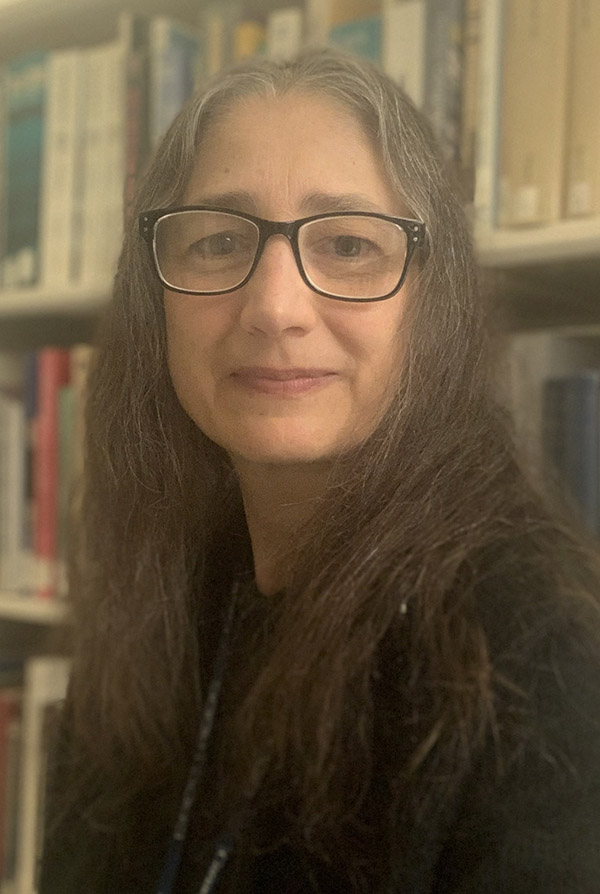 Angela Febbraro
Angela FebbraroA defence scientist with Defence Research and Development Canada, Angela Febbraro works to create messaging that counters the recruitment propaganda put out by extremist groups like ISIS.
Angela Febbraro
What messaging does an extremist group, like ISIS, use to recruit young people to join? Is their messaging different for young men than it is for young women? And how can we create a counter-messaging strategy to dissuade those people from a life of extremism? These are the questions currently being tackled by Angela Febbraro and her team of (mostly social psychologists) at Defence Research and Development Canada (DRDC).
Angela is a Defence Scientist, and has studied all kinds of issues pertaining to national defence, most of them around gender. Early on, she studied the leadership styles of women in leadership positions in the military. Did they feel the need to conform to a more stereotypically “masculine” leadership style, or were they comfortable forging their own? It turns out that women in those leadership positions did not feel the pressure to behave in a more “masculine” fashion, but at the same time women in more subordinate positions felt this pressure quite acutely.
In discussing the studies in which she’s involved, Angela speaks a lot about context. Early on in her school journey, she was struck by the notion that human behaviour depends in such an enormous way on the context in which that behaviour occurs. Now, after all that school and a PhD in Applied Social Psychology from the University of Guelph, context still matters a great deal.
Yes, the messaging from extremist groups target men and women differently. But counter-messaging must take into account much more than just gender. Angela and her team look at the local landscape in the areas that are being targeted. The culture in that part of the world, the method through which they receive the extremist messaging. A counter-messaging campaign to prevent the radicalization of a young woman in the Idlib Governorate in Syria might be vastly different than one targeting a young man in Maple Ridge BC. Or even one targeting a similar young woman in a neighbouring province of Syria.
There are many highlights in Angela’s job, but she says this, specifically, is the best part:
“The opportunity to apply my expertise (e.g., on gender and diversity, developed during my graduate training in psychology) to current defence and security challenges (to work on interesting/exciting challenges, such as gender and counter-radicalization!); the opportunity to communicate my research findings/analyses through written reports and articles; and the opportunity to mentor junior scientists.”
Angela’s scientific training in psychology, both content-related and methodological, has helped her carry out her responsibilities as a defence scientist. At DRDC her focus is on conducting applied, defence-related research, and broadening her expertise to address current and future defence and security challenges. Her responsibilities include planning, organizing, conducting, analyzing, and reporting basic and applied social- and organizational-psychological research; interacting with the Canadian Armed Forces and other national/international security partners; and building the scientific capabilities of the entire organization.
And currently, of course, using psychology to counter the propaganda of extremist groups all over the world.
 Amanda Parriag
Amanda ParriagAmanda owns her own consulting business, the ParriagGroup, and spends much of her spare time working in her Ottawa community to end violence against women.
Amanda Parriag
“Amanda is a star! She has leveraged her MUN education to provide stellar research and evaluation services. She has become a trusted advisor to her clients and is a leader of Women's issues in Ottawa. She was the president of MediaAction for 8 years, has run Ask Womxn Anything for more than 5 years, and sits on the board of the Ottawa Coalition to End Violence Against Women (OCEVAW). She has owned and operated her own business for 20 years and for me, she is a friend, a supporter and a role model.”
Susan Underhill is effusive in her praise for Dr. Amanda Parriag, her current colleague and collaborator and long-time friend since university (MUN is the Memorial University of Newfoundland, where they studied psychology together years ago). Amanda obtained her PhD from MUN, but not a lot of her clients know this. She doesn’t refer to herself as “Dr.” and rarely tells people she has a PhD in psychology. That’s because when she does, she finds people behaving a little differently, choosing their words more carefully, and thinking that Amanda is psychoanalyzing them at every turn.
Not exactly her thing – Amanda is a researcher – but on occasion this response can come in handy! Amanda runs the ParriagGroup, a consultancy that specializes in research, evaluation and performance measurement. Her small business has been running for 20 years, and while Amanda is the lead on everything, she works with a team. She has six research assistants and six consultants that she pulls in at different times to complete bigger projects.
The ParriagGroup works mostly with governments and not-for-profits. Recently, she and her team worked with an Ottawa not-for-profit on a program they were doing jointly with another not-for-profit. It was a program to work with women who were potentially victims of gender-based violence, and were intersecting with the child welfare sector. The program was designed to provide an intersectional lens in supporting the women and their families. It had been running for a few years, but the group wasn’t sure they were helping the women in the way the program was designed. Amanda and her team looked at the location of the program, the governance, how it was resourced, the skill sets of the people working within the program. The ParriagGroup also did a document review to determine what had been written about how these types of programs were supposed to function.
The group took Amanda’s recommendations to heart (always gratifying!) and ran with them. They made some immediate changes, started to implement others, and looked to outsource a few more. Amanda says,
“Hopefully, because of my work, women in the community who are in this frustrating space, intersecting with the child welfare system and potentially experiencing gender-based violence, can get better support. This can help them make better decisions and move forward in a more sustainable and human way.”
This is where Amanda’s real passion comes out. She feels lucky to be living the dream – she works out of a home-based office with the rest of her team spread across Canada. She can carve her day out as she pleases. And on a beautiful sunny day, she can post an out-of-office and spent time in the pool.
And she also loves the time she can take to work in the community. The focus of her studies at MUN and Carleton was gender-based violence, and she is still doing everything she can in that field.
Susan mentioned Amanda’s work with OCEVAW, and Ask Womxn Anything. AWA gathers together amazing women from the Ottawa community to talk about their expertise on a particular topic. People from across the city are invited to come and have a discussion in a warm and inviting environment. Amanda says,
“Women are not often heralded as experts and so this is an opportunity for these women to be recognized as such, especially among our peers. And it’s an opportunity for women and men in the Ottawa community to see these experts. You can’t be what you cannot see.”
The next Ask Womxn Anything event is called ‘Black Womxn Making the World A Better Place’. They are focusing on black women because February is Black History Month, and the AWA panels are designed to be intersectional without tokenizing the participants. ‘Black Womxn Making The World A Better Place’ is coming up February 18th – at the Pressed Café, if you’re in the Ottawa area. The speakers include Deborah Owusu-Akyeeah, a feminist activist and Campaigns Officer at OXFAM. Meghan Wills, President at Parents for Diversity and current project coordinator at the Michaëlle Jean Foundation. And Maya McDonald who is an educator, facilitator, and storyteller – among many other things!
AWA is a great way for people in Ottawa to get to know experts and remarkable women. Much like Amanda herself, and Susan, and the splendid teams with which they surround themselves.
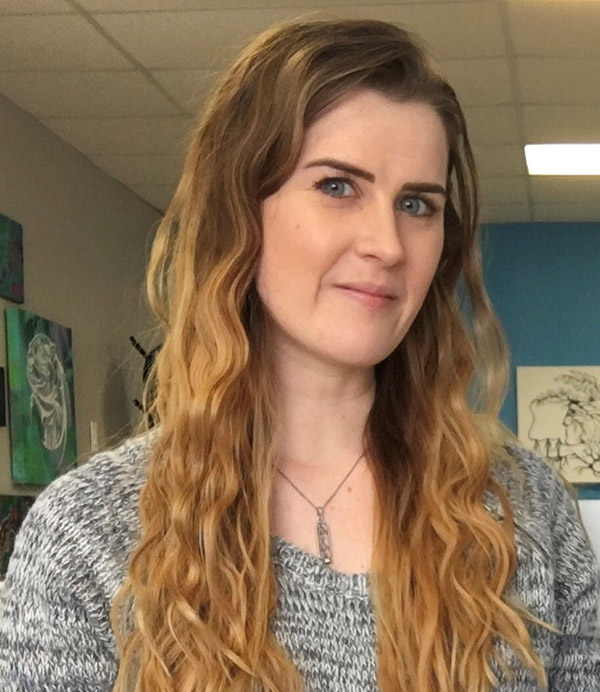 Anne-Marie Côté
Anne-Marie CôtéAnne-Marie coordinates virtual field trips, among many other things, for students in remote northern indigenous communities with a program called Connected North.
Anne-Marie Côté
Anne-Marie Côté became passionate about the field of education after accepting a three-month replacement contract in a school in Guyana, South America, where she ended up spending the next two years. She was able to experience and understand the crucial impact teachers have on shaping how kind, resilient, adaptable, and confident students become regardless of curriculum taught, and therefore how important it is for students to be surrounded by positive role models at school. Back in Canada, she now teaches an online English as a Second Language course to children in China, and she also works with TakingITGlobal, a non-profit whose mission is to empower youth to understand and act on local and global challenges. She mainly works on a program called Connected North.
Connected North delivers immersive and interactive education services to remote indigenous communities in Northern Canada through Cisco’s TelePresence video technology. Anne-Marie coordinates virtual field trips and guest experts for schools in Nunavut. She also works on developing Francophone content for the program.
Anne-Marie says her Master’s in Organizational Psychology from Carleton University has served her very well in her professional career:
“My psychology training has helped me in my work with children and Indigenous communities. It's helped me approach everything I do from a standpoint of compassion and understanding. Every behaviour has a reason. People don't just ‘’do things for nothing’’. It's helped me appreciate that anyone "in trouble'' (or not, everyone in general) has their own story and if you're trying to make change you need to invest and really care about people.
My organizational psychology training has also helped me understand the dynamics of the workplaces I have been a part of. It's helped me understand good and bad leadership, and how to recognize these. Although I’m not currently consulting, it's also helped me guide some of my workplaces through change and development as well as understand program evaluations and other organizational development processes.
It’s also made me become a better employee in general. I know from the research what makes happy employees and organizations and it has made me brave enough to ask for certain things or just share some of this knowledge with employers in hopes to make a better workplace for everyone. This training has also made me more compassionate. Just understanding some of the processes behind human behaviour makes you really care about people and where they’re coming from.”
Anne-Marie is thrilled that she is able to positively impact children in so many different ways.
“Children spend most of their time growing up at school and I think it's so important for them to be surrounded by supportive adults and be in an environment where they feel safe to be who they are and to learn. Equally, it’s important that they have access to engaging and culturally relevant educational resources, regardless of where they are. That's really my main goal working in education; build empowering and innovative classrooms and be a positive role model children feel like they can come to easily.”
She loves being part of this incredible program that creates opportunities for Indigenous communities in the area of education – an area that's so important, and where a lot of trauma still lies. Her hope is to begin to focus on programs that promote mental health and teach emotional regulation early on in those schools where she makes such a large impact.
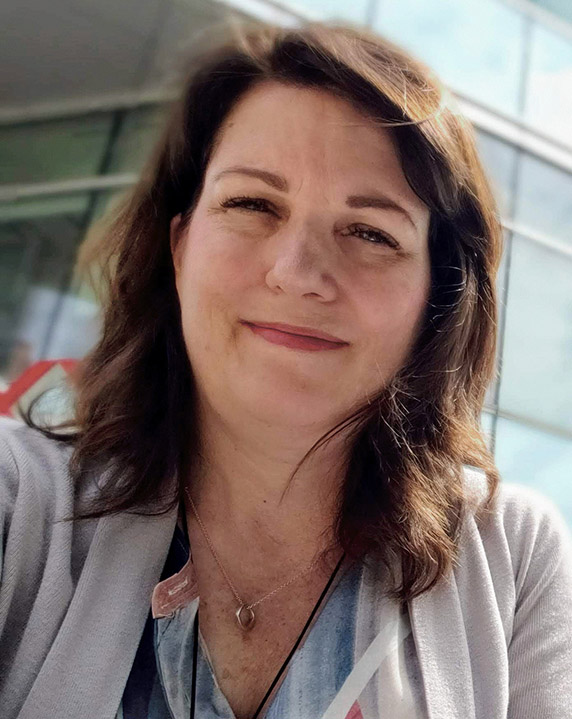 Susan Underhill
Susan UnderhillPresident of the Connor Claire Group, a consulting firm that works with both the government and non-profit sectors, Susan is a specialist in doing more with less.
Susan Underhill
For people who work in the non-profit sector, doing more with less is a massively important key to being successful. When it comes to the public sector, we Canadians are all invested in efficiency and innovative practice. Thankfully, there are people out there who specialize in helping such organizations become the best they can be. Susan Underhill is one of them.
Susan is a management consultant for both government and the non-profit sector, as President of the Connor Claire Group. She does policy research, organizational design and development, coaching, business process improvement, and much more to help improve the performance of organizations of all shapes and sizes. Her colleague and collaborator, Amanda Parriag of the ParriagGroup, says of Susan,
“We went to university together and have stayed friends through the years. In the last few years we’ve had the opportunity to work together. It’s really a joy for me. We don’t agree on everything, but she can present things where she needs to change my mind in such a way that I can hear it. I implicitly trust her, she’s extremely smart and gets things very quickly. I really love working with her.”
We asked Susan how her training in psychology (she has a Masters in Experimental Psychology from the University of Newfoundland) has helped her in her current role.
“I am a good researcher - both qualitative and quantitative. I know what questions to ask, where to find information, and how to interpret that information to provide sound, evidence-based policy advice. Psychology has also helped me to consider organizational dynamics and the impact of these dynamics on implementing changes.”
One of the highlights of a job like Susan’s is that there are a never-ending set of policy questions that require new research. Susan says she loves the variability of her job and supporting government and not-for-profits to better serve individuals who need important services.
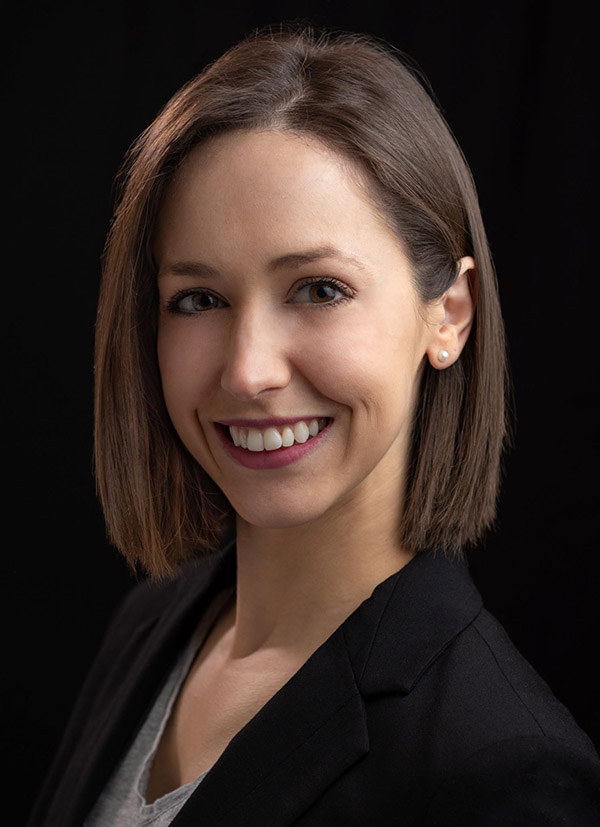 Sophie Kenny
Sophie KennyA staff scientist for VPixx Technologies, Sophie helps bring eye capture technology, among other devices, to scientists and labs around Canada and the rest of the world.
Sophie Kenny
Somewhere in the world, right now, there are researchers using a specialized device manufactured by VPixx Technologies. These researchers might be working in a behavioural laboratory, an MRI or MEG space, or even working with non-human primates. That device might be an eye tracker, a video projector, a sound system or a calibrated visual display.
Whichever device they are using, there is a strong possibility that Sophie Kenny helped to bring their work to fruition. As a staff scientist for VPixx Technologies, Sophie works directly with the academic community. Her role is not only to understand the current needs of researchers, but also to identify research trends and opportunities for growth of the company.
More precisely, Sophie provides consultation services for lab setups. She writes work orders for custom software and hardware development, designs and presents product or technology-oriented workshops, and gives seminar lectures and invited talks. She also visits conferences (Society for Neuroscience, the Vision Sciences Society, the Psychonomics Society) to interact with academic clients and partners. It is there that she sets up independent and collaborative research projects, such as conducting literature reviews, methods papers, and perceptual/cognitive experimental research.
Sophie obtained her PhD in Brain, Behaviour, and Cognitive Sciences from Queen’s in 2017, and says that her academic studies have prepared her admirably for her current career:
“During my research training, I have worked on research spanning attention, reading, memory and movement perception research. Through this broad experience, I used advanced methodologies which have included eye tracking, whole body motion capture, virtual reality headsets, fMRI recordings, and scripting for high-level research experiments software and game engines. This knowledge and skill base has been invaluable, because in most aspects of my work, I am called to comment and advise clients and colleagues on a eclectic variety of research designs and applications.”
Now working for a company doing those exact things, Sophie has found her niche.
“VPixx Technologies is an incredibly dynamic and collaborative environment. I feel that as a staff scientist, my work has a positive influence on the quality of the work that happens in our industry, and ultimately, in the laboratories of the researchers who use our devices.”
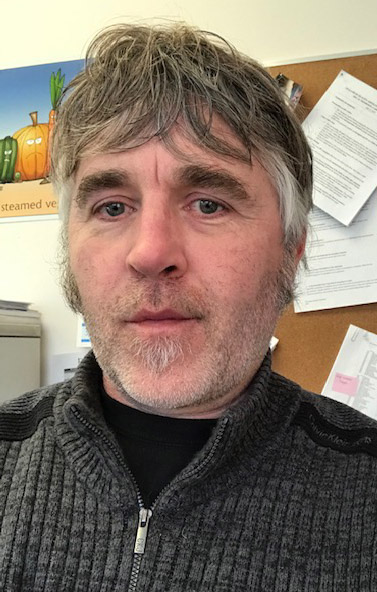 Troy Forcier
Troy ForcierTroy has worked in Child and Youth Mental Health for years, since graduating with an M.Ed. in Education Counselling Psychology. He is the Director of Operations for the Ministry of Child and Family Development (MCFD) in Williams Lake, B.C.
Troy Forcier
You might expect someone with an M.Ed. in Education Counselling Psychology to work as a Child and Youth Mental Health clinician, or some such thing. And Troy Forcier did, for several years after graduating from UNBC. From there, he moved on to a job as a clinical supervisor, before taking on his current endeavour.
Troy is the Director of Operations for the Ministry of Child and Family Development (MCFD) in Williams Lake, British Columbia. The MCFD is, among other things, the main child protection service for the province. They also do a lot of preventative work (family support, parent psychoeducation groups, Child and Youth with Special Needs support). Troy manages contracts, HR, resources and guardianship, facilities, child and youth mental health for the region, and community relations.
After spending many years dealing one-on-one with children and families, Troy embraces the more bureaucratic nature of his new position. There are two things, above all others, that make this job pleasurable for Troy. One is working with people – something he has always done, but it is now in a different context. The other is making change – specifically, changes he can help create at his own specific bureaucratic level.
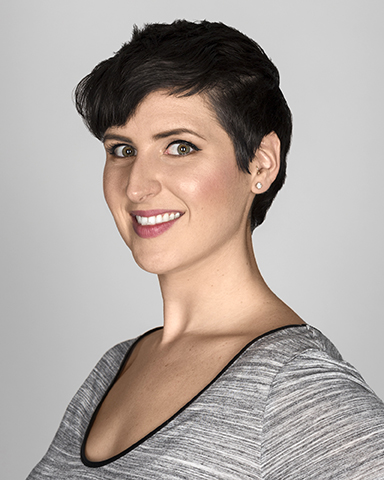 Natalie Therrien Normand
Natalie Therrien NormandNatalie is a Program Manager at the provincial team that oversees grants made by the Ontario Trillium Foundation. Her current work is informed enormously by her studies in psychology and experience as a TA.
Natalie Therrien Normand
My name is Natalie Therrien Normand, and I'm a Program Manager at the provincial team that oversees grants made by the Ontario Trillium Foundation (OTF), an agency of the government of Ontario. I have my MA in Experimental and Applied Psychology from the University of Regina. I received it in 2013, but so much of what I did at university I am still doing today.
I help people apply for grants by delivering presentations (like the courses I used to guest lecture in as a TA) and doing one-on-one coaching (like office hours), I assess grant applications when they come in (like scoring papers and exams as a TA), and monitor grants that are funded (which works a lot like monitoring all the work happening in my old labs). I also work on OTF's volunteer education initiatives to train our volunteers to meet corporate goals. This means a lot of juggling, like in my academia days.
Studying psychology has helped me in a myriad of ways. First are the obvious project management skills I learned in my graduate level studies, which apply to managing grants. Juggling multiple projects and deadlines is essential to my work, and indeed my career. But beyond that, learnings about human behaviour and the mind keep popping up, whether it's communication skills, the team-forming framework I learned in, literally, one sports psychology class that comes up over and over again. People think you have crazy ninja human behaviour skills, but it's things anyone can learn in basic psychology courses (which is what I tell them!). What may be most important are my critical thinking skills, and being adaptable in a field where feedback and constructive criticism are constant. We all know from our training that the constant cycle of producing work, receiving feedback, and working to improve that work is how you grow, or how a project/paper gets better.
I love that I get to work with people. I love that I get to apply my skills in an unexpected way. I work with people with super varied educational and professional backgrounds but I don't think anyone expects to have someone with an advanced degree in Psychology among them. The assumption is that this would mean I'd be a clinician or a counsellor. And as I mentioned above, even the basic principles of an education in psychology come up in the every day working world.
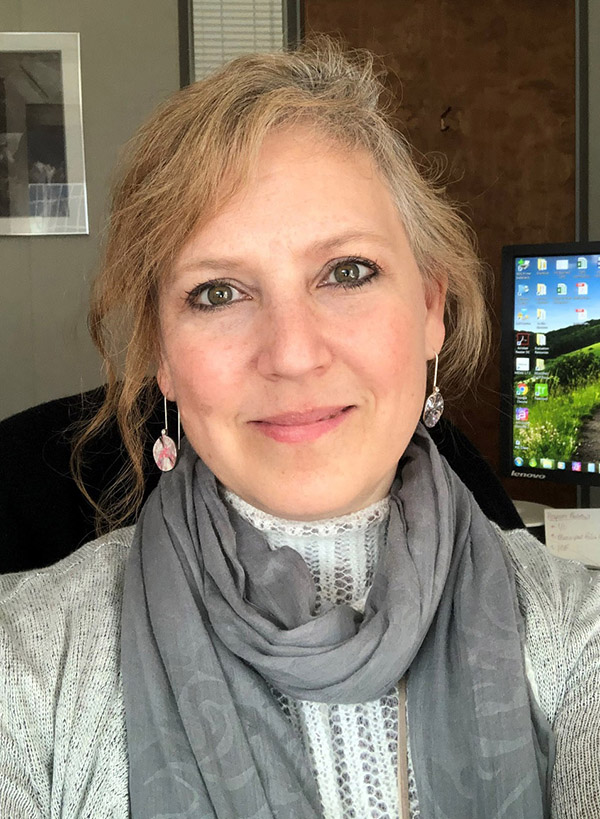 Sandra Meeres
Sandra MeeresSandra works for the provincial government in Saskatchewan. She is the Manager of Planning, Evaluation and Improvement in the aptly-titled Office of Corporate Planning Evaluation and Improvement.
Sandra Meeres
In 1994, Sandra Meeres graduated from the University of Saskatchewan with a Masters in Applied Social Psychology. Sandra is also a Credentialed Evaluator through the Canadian Evaluation Society. She achieved the designation in 2017. Today, she remains in Saskatchewan working for the provincial government. Sandra is the Manager of Planning, Evaluation and Improvement in the aptly titled office of Corporate Planning Evaluation and Improvement. She conducts needs assessments, program development and design, program review, and evaluations in human services. Her current work focuses on justice, corrections, and policing. Sandra says,
“All aspects of my formal psychology training have helped in my current role - especially the internship and practicum placements that were part of my graduate program. I have also relied on ongoing professional development to ensure I stay up to date with current practices and trends. I have been working in my field since I graduated – more than 25 years - and I have enjoyed every minute of it. I get to work with a variety of people in many different roles throughout the organization, and also with stakeholders from other ministries and external service providers.
It's very fulfilling working with key stakeholders - gaining insights by interacting with everyone from clients and participants to program managers and leaders. My work is very satisfying because I know it is helping to provide decision makers with the essential information they need. It guides them to see what aspects of programs and services are working well, and where there are gaps or areas that could be strengthened or improved.”
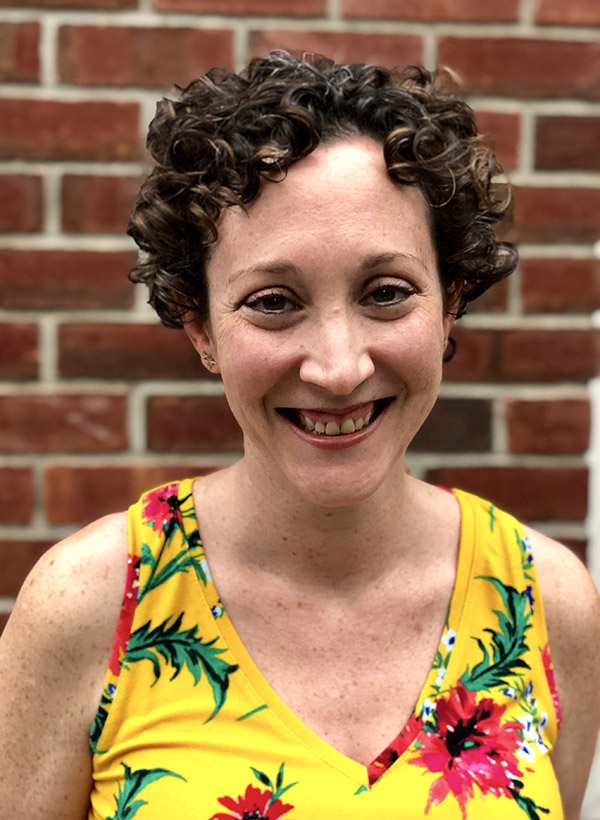 Jenn Richler
Jenn RichlerDr. Jenn Richler has always been deeply passionate about championing the work of others. Jenn has a PhD in Cognitive Psychology and is putting it to use as a senior editor at two scientific journals – Nature Climate Change and Nature Energy.
Jenn Richler
The January issue of Nature Climate Change has papers on changing bird migrations, projections of lemur habitats in the Malagasy rainforest, climate change detection in daily weather, and the risk of breadbasket failures. It’s a publication that brings together a number of disparate disciplines from every corner of the world in a common cause – tackling climate change. One of the people responsible for this publication is Jenn Richler, PhD Cognitive Psychology, Vanderbilt 2010.
Jenn works at Nature Research, where she is a Senior Editor at Nature Climate Change and also another research journal, Nature Energy. She evaluates, selects, and oversees peer review of scientific manuscripts from across the behavioral and social sciences, including psychology, sociology, behavioral economics, political science, human geography, and communications. In addition, she commissions, edits, and writes non-primary research content like Reviews, Comments, Research Highlights and Editorials. It’s a job perfectly suited to a psychologist, and Jenn says,
“A key part of my job is evaluating scientific manuscripts from across social science disciplines. Although I handle manuscripts outside of psychology, training in scientific thinking and research design applies broadly across the fields I cover. We also get very ‘hands on’ with papers that are ultimately published, and so the experience I have writing manuscripts and presenting data is very valuable. Finally, being in academic publishing means that I rely a lot on what I learned about publishing and peer-review when I published my own papers in graduate school and during my post-doc. Those experiences were critical to shaping my ideas about what makes peer-review work well, what the problems are, and how we might develop innovative solutions.”
One of the highlights for Jenn is the intellectual side of the job –justifying editorial decisions requires balancing a lot of different factors, as few decisions are easy. It’s intellectually stimulating to craft arguments about each manuscript, and then discuss them with colleagues. This is the part of Jenn’s work that takes place behind the scenes, but is of crucial importance to the final product. Jenn says that, and highlighting the work of others, give her the deepest satisfaction.
"I always liked research, but I was never deeply passionate about any one research topic - I never wanted to have to convince anyone that my research was interesting. I get much more satisfaction from getting a bird’s eye view of a lot of different fields, inviting experts to write about important topics, championing the work of others, and helping authors make their work as strong and impactful as it can be. I feel that I am truly providing a service to my authors, and take a lot of pride in that.”
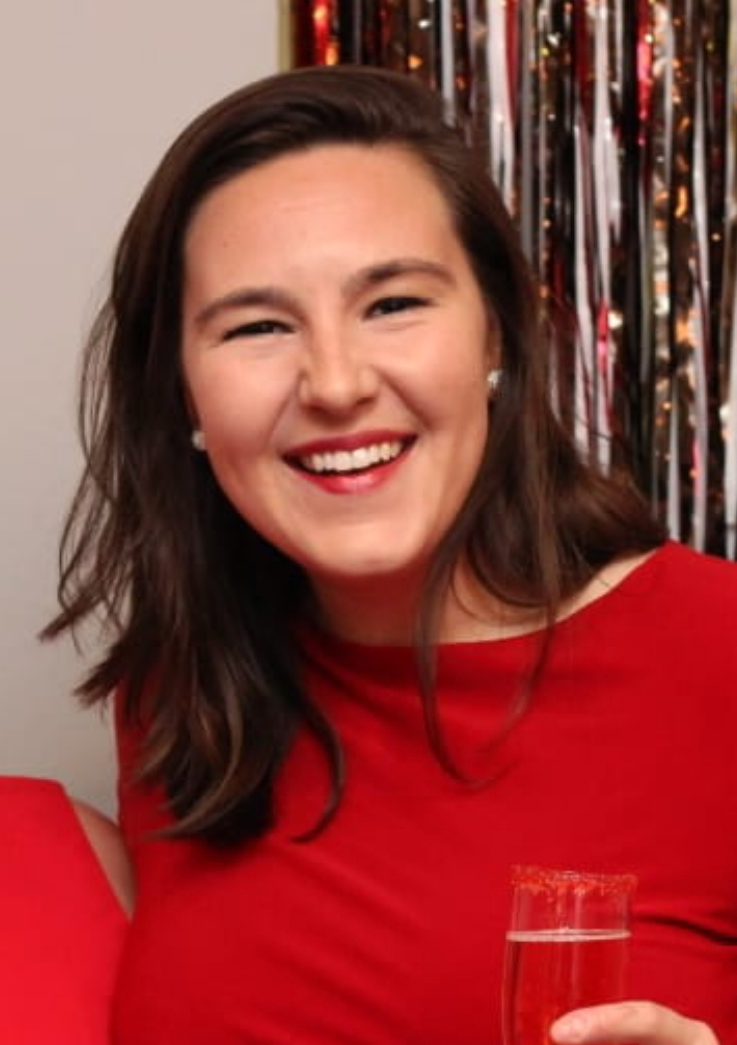 Christina Bilczuk
Christina BilczukChristina has achieved a remarkable work-life balance thanks to her background in psychology. She works from all over Canada, from home and from the office on her own schedule, as an Account Executive for McCabe Promotional Advertising.
Christina Bilczuk
One of the things a person might learn in university, if they’re lucky, is the ever-elusive work-life balance. In Louisiana, while pursuing her undergraduate degree, Christina Bilczuk managed to balance her studies with the rigour of playing Division I NCAA soccer. After completing her Masters in Social Psychology at Carleton University, Christina moved on to a job as an Account Executive with McCabe Promotional Advertising, but of course had to maintain her soccer bona fides with her beer league team the Goaldiggers.
Work-life balance is easier when you’re not stuck behind a computer all day. Working from home when you want, traveling as often as you like, in a relaxed atmosphere in an ever-challenging career. Such is the case for Christina at McCabe.
At the moment her work is taking place largely in and around Ottawa, where she is working with the Air Cadets (specifically the 51 Air Cadet Squadron, based out of the Canadian Aviation and Space Museum) on some fun apparel items. She’s doing the same with Camp Fortune, a ski hill located just across the Ontario-Quebec border in Chelsea. Ottawa kids planning to become fighter pilots, or those training to one day compete in the Olympic giant slalom, might soon do so in clothes provided by McCabe.
Christina works directly with clients who need promotional products (anything with their branding on it). Her role requires a lot of person-to-person contact. Some interactions are great, others not so good, but all her interactions are informed and assisted by her training in psychology. Christina says:
“My experience within psychology allows me to take a step back and think about things from [the client’s] point of view (but that also comes from my own struggles while in school, and being able to relate to others experiencing a difficult time). Of course, time management, being able to respond positively to constructive criticism, research skills - there are endless ways in which my education has aided in pretty much every aspect of my life.”
Christina showcases artwork, provides product suggestions and pricing, and she pushes sales through to completion & delivery. She can do all of this from home, while traveling, or in person all over Canada. It’s a role that suits her well, and her background in psychology is what made it such a good fit.
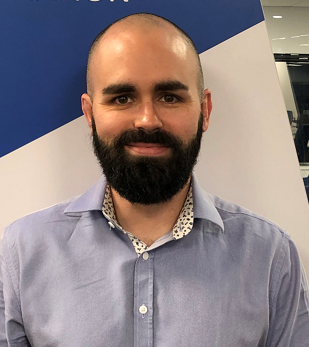 Marc-André Lafrenière
Marc-André LafrenièreDirector of People Analytics for the National Bank of Canada, Marc-André coaches a team of data scientists, combining scientific rigor and creativity with practical considerations. His team, he says, is “at the forefront of innovation”.
Marc-André Lafrenière
One could make the case that every psychologist specializes in “Advanced People Analytics”, depending on how one defines such a term. For Marc-André Larfrenière, “Advanced People Analytics” is exactly what he does. That’s his job title with the National Bank of Canada. People analytics helps business leaders unlock the power of data to improve the way organizations identify, attract, develop and retain employees
As Director of Advanced People Analytics, Marc-André develops a people analytics vision and a roadmap that are aligned to business priorities. He leads, motivates, and coaches a team of data scientists as they implement methodologies and governance processes to address business needs. Marc-André and his team combine scientific rigor and creativity with practical considerations. In his role, Marc-André is able to provide leadership, subject matter expertise and business insight on all sorts of people analytics projects, including turnover prediction, pay equity analysis, psychometric testing, natural language understanding, and employee engagement analysis.
Marc-André says his PhD in Social Psychology from UQAM has served him very well in his professional career:
“Knowledge of social and IO psychology helps me bridge the gap between business needs and data science. It allows me to ensure that analytics projects are aligned to clearly address business issues. Also, my background in social psychology aided me play a key role as an analytics translator across multiple projects. Furthermore, scientific knowledge that I acquired during my studies and maintained afterward allows me to play a role as a subject matter expert on several subjects (e.g., employee engagement, compensation programs, psychometrics assessment, etc.). Finally, both my expertise in research methods and statistics eased my transition toward data science and allowed me to champion the scientific method and ethical principles inside the organization.”
Marc-André works in a multidisciplinary team, and his particular discipline is well-suited to people analytics. He likes that his team has a direct and clear impact on the business, and helps with HR transformation through technology and data. His is more than just a data translator role, he and his team are, as he says, “at the forefront of innovation”.
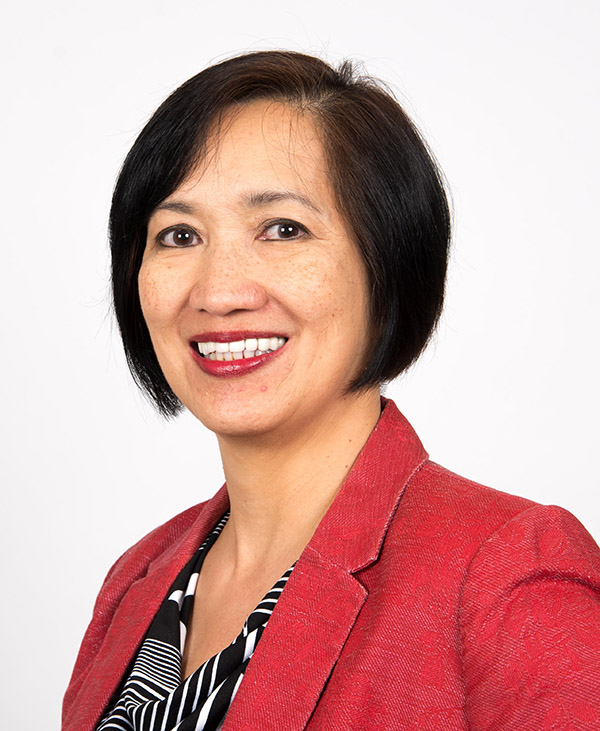 Evangeline Danseco
Evangeline DansecoDr. Evangeline Danseco loves that her job has an impact on improving mental health services and addressing system-level issues. Evangeline is the Performance Measurement Coach at the Ontario Centre of Excellence for Child and Youth Mental Health.
Evangeline Danseco
A position that gives you the opportunity to have an impact on improving mental health services and addressing system-level issues would be desirable for many PhD graduates in Applied Developmental Psychology. Evangeline Danseco earned that degree from the University of Maryland Baltimore County in 1997, and now does just that.
Her psychological training has prepared her with a knowledge of research and evaluation methods (both qualitative and quantitative) as well as of child, youth and adult development, and with skills in critical thinking and writing. These body of knowledge and skills plus a thirst for ongoing learning and a desire to bridge the gap between research and practice, have served her, and Ontario, well.
Evangeline is the Performance Measurement Coach at the Ontario Centre of Excellence for Child and Youth Mental Health. There, she leads the development and implementation of various initiatives taking place in Ontario’s child and youth mental health sector focusing on performance measurement and/or system planning. The province of Ontario recently developed new quality standards in regard to youth and family engagement, and it is Evangeline who has led the evaluation of those standards.
Evangeline consults with and advises key stakeholders such as Ministry partners, expert panels, advisory groups, and lead agencies. She also collaborates with youth and family members on provincial initiatives. Her position has an impact, addresses important issues, and is a terrific example of knowledge mobilization in action.
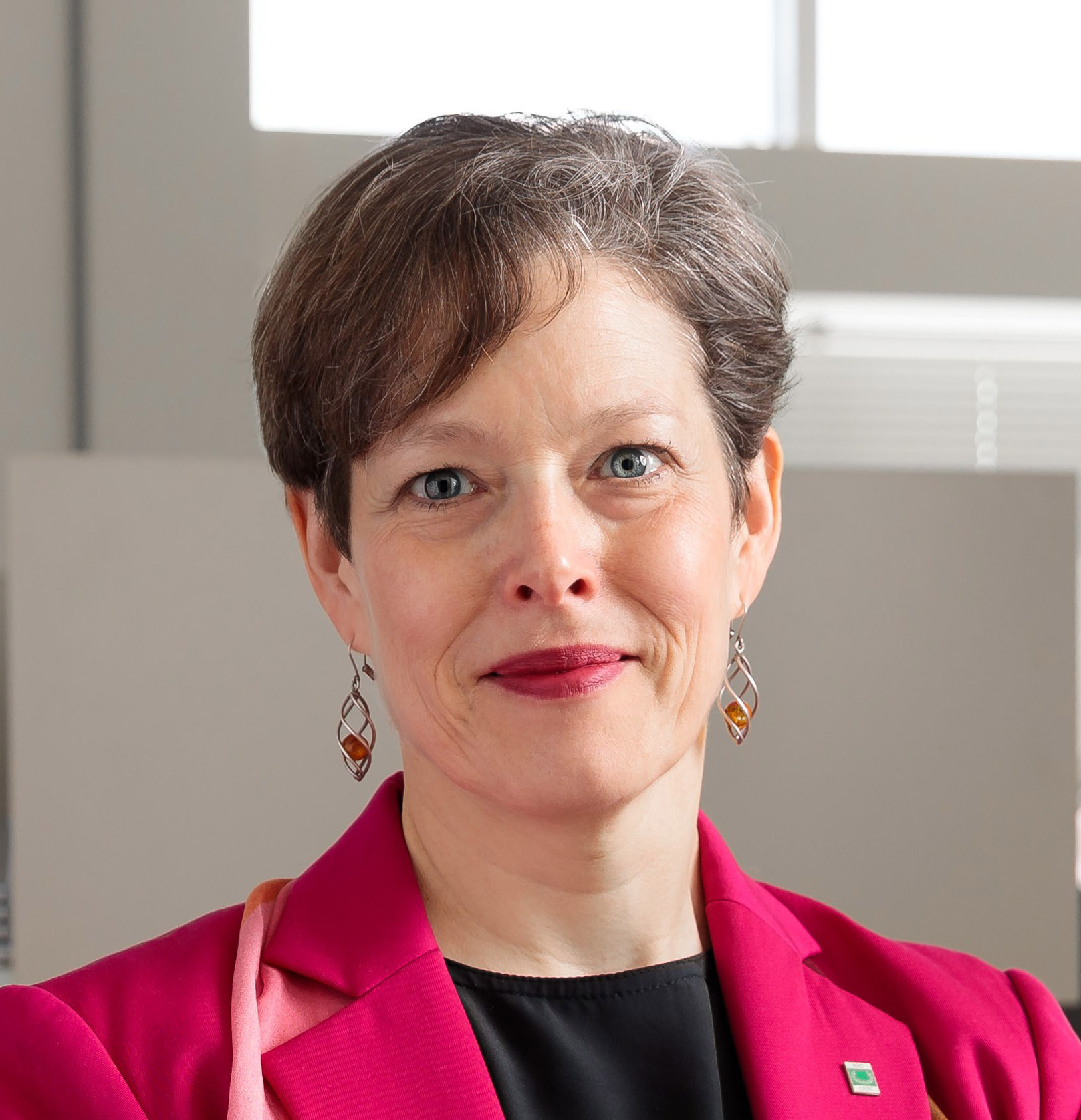 Jennifer Veitch
Jennifer VeitchFrom her very first introductory psychology class, Jennifer Veitch knew she wanted to get into environmental psychology. Many classes, years, and a PhD later, Jennifer is living her dream as a Principal Research Officer at the National Research Council of Canada.
Jennifer Veitch
Sometimes, a career path can be determined very early on, whether you know it or not. Such was the case when Jennifer Veitch became excited about environmental psychology in her very first introductory psychology course. She later volunteered in that prof’s lab where she learned practical data collection skills that she still uses today. A few years later, she was graduating from the University of Victoria with a PhD in Environmental Psychology.
To this day, the research Jennifer does is reflective of what she learned in those first intro psych classes, and from that professor. The big difference, in research terms, is the setting. She is a full-time psychological scientist in an interdisciplinary research setting, and uses her psychology skills to study how people relate to their physical surroundings.
Jennifer is a Principal Research Officer at the National Research Council of Canada, where she is responsible for the initiation (including obtaining internal and external funding), management, and conduct of research on the effects of the physical environment on occupants’ behaviour and well-being, and for disseminating the resulting knowledge through pertinent industry and research channels. That means that she publishes papers in journals, but also contributes to national and international standards and recommendations by participating in organizations like the International Commission on Illumination. For example, she leads a project that is conducting a systematic review of the literature on the effects of daytime light exposure on cognition, well-being, and physiology; she also is an active contributor to both North American and international recommendations for lighting that will be based on that literature.
Jennifer says,
“The research I do today is a direct extension of things I learned [in that lab, from that professor] - but now I can study more complex problems with my engineering, physics, and architectural colleagues, and I have routes through which to influence decision-makers to apply what we learn.”
